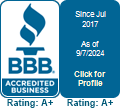What you don’t know about Medicare’s complicated rules and deadlines can hurt you. The requirements are particularly confusing for people who continue to work past the traditional retirement age of 65.
For most people, the Medicare initial enrollment period begins three months before the month of their 65th birthday and ends three months after that month. If you are already collecting Social Security, you will automatically be enrolled in Medicare A, which is free and covers hospitalization, and Medicare Part B, which carries a monthly premium and pays for doctors’ visits and outpatient services.
Timing is Crucial
If you aren’t collecting Social Security, it’s up to you to sign up for Medicare during your initial seven-month enrollment period, or you will face life-long penalties. Miss your initial enrollment period and you will have to pay a delayed enrollment penalty equal to 10% of your basic premium amount for every year you were eligible to enroll in Part B but didn’t. A separate delayed enrollment penalty of 12% per year applies to Medicare Part D prescription drug plans.
Still Working
There is a way to avoid the Medicare delayed enrollment penalty. If you have group health insurance coverage from your current employer, or are covered under your spouse’s group health plan, you can delay enrolling in Medicare Part B and D until up to eight months after your employer coverage ends. Note to employees of small businesses: Your employer’s health plan must cover at least 20 people to be considered creditable coverage by Medicare.
Beware of COBRA
Some individuals choose to extend their employer-sponsored health insurance for up to 18 months after they leave their job under COBRA rules that require them to pay for the full cost of insurance with no employer subsidy. But COBRA coverage does not qualify as a creditable substitute for Medicare. You still must sign up for Medicare on time or face delayed enrollment penalties.
Don’t Procrastinate!
If someone misses their initial enrollment period when they are first eligible for Medicare or the special enrollment period after their employer coverage ends, they may have to wait an extended period of time to sign up for Medicare and be on the hook for 80% of their health care costs in the interim. Procrastinators must wait until the general enrollment period that occurs every January through March for Medicare coverage that begins the following July 1.
All-inclusive or a la carte
When you enroll in Medicare, you must decide how you want to receive your health care coverage and how to pay for that. You can stick with original Medicare Part A and B and supplement that coverage with a private Medigap policy to cover deductibles and co-pays. Plus, you may need to buy a Medicare Part D prescription drug plan. Or you can choose an all-inclusive Medicare Advantage plan; such plans often offer extra coverage at lower premiums, but health care services are limited to a specified network of doctors and hospitals.
Income determines premiums
Although most Medicare beneficiaries pay $134 per month for Medicare Part B in 2018, some people pay much more. Individuals with modified adjusted gross income, which includes tax-exempt interest, of $85,000 or more and married couples with MAGIs that top $170,000 pay a monthly high-income surcharge. This year’s Medicare premium surcharges, which range from $53.50 to $294.60 per month per person on top of the standard premium of $134 per month, are based on income report on 2016 tax returns. A new top tier for very high-income beneficiaries will be added in 2019 based on 2017 tax returns.
Have questions about your Medicare Options, call Stephanie at Secure Your Legacy (832) 953-4229 or go to www.medicare.gov for more information.



.png)

